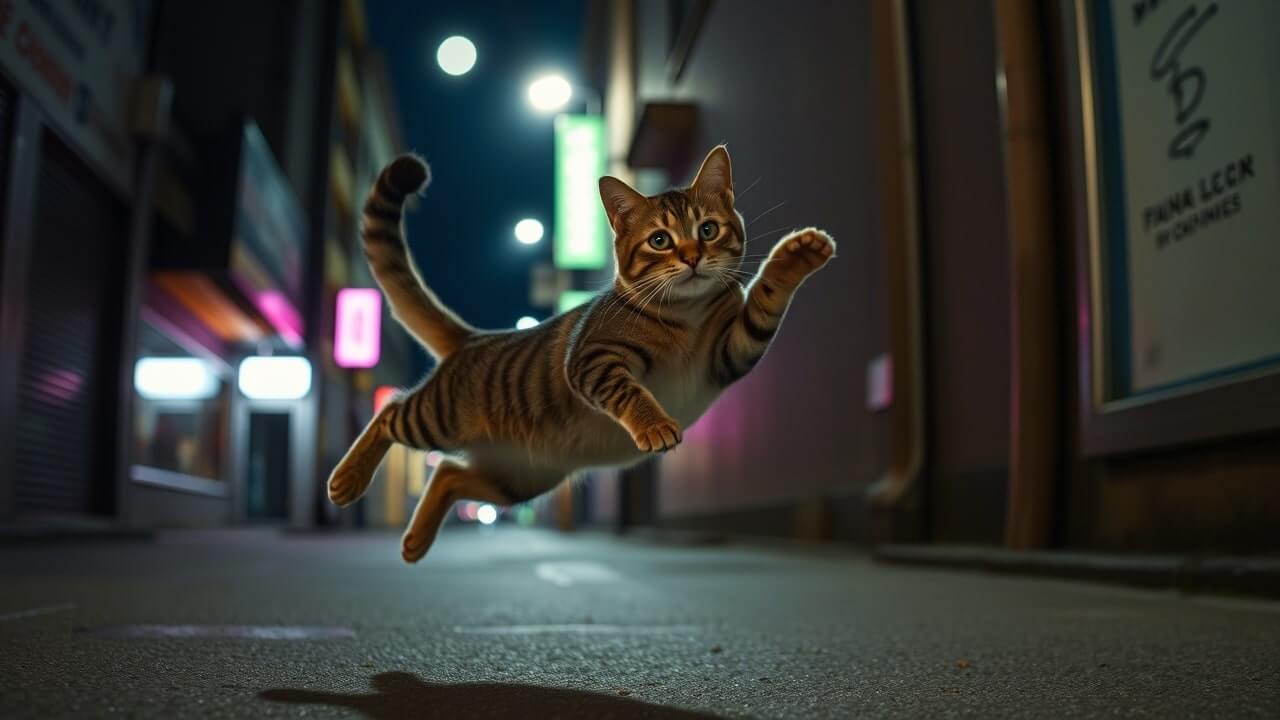Cats are often active at night because they are naturally nocturnal animals, or more precisely, crepuscular — meaning they are most active during the twilight hours of dawn and dusk. This behavior is the result of biological and evolutionary adaptations that have helped them survive and thrive in their natural environments.

🐾 1. Instinct from Wild Ancestors
Domestic cats inherited their nighttime activity patterns from their wild ancestors, who were skilled hunters. Many small prey animals, such as mice, birds, and insects, are most active during the early morning and late evening. To successfully hunt these creatures without being easily detected, cats evolved to be alert and agile during those hours.
🐾 2. Excellent Night Vision
Cats have highly developed eyes that allow them to see clearly in low-light conditions. Their eyes contain a special reflective layer behind the retina called the tapetum lucidum , which enhances their ability to capture even the smallest amount of light. This makes them well-suited for navigating and hunting in the dark.
🐾 3. Survival Advantage
Being active at night also offers survival benefits. During the night, there are fewer large predators around, making it safer for cats to explore and hunt. Additionally, cooler nighttime temperatures help conserve energy, which is especially important for small hunters like cats.
🐾 4. Sleeping Habits and Energy Conservation
Cats are known for sleeping a lot — up to 12–16 hours a day . They usually take short naps throughout the day and become more energetic in the evening and early morning. This allows them to save energy during the day and be ready for action when their prey is most active.
🐾 5. Natural Circadian Rhythm
Cats follow an internal body clock, or circadian rhythm , that keeps them alert during dawn and dusk. This natural rhythm helps them stay synchronized with their environment and optimize their chances of successful hunting.
💡 Tips for Cat Owners
If your cat becomes very active at night — running around, meowing loudly, or waking you up — here are some suggestions:
- Play with your cat before bedtime to help burn off excess energy.
- Feed your cat a meal in the evening , mimicking natural hunting and eating patterns.
- Provide stimulating toys during the day to keep your cat engaged and less restless at night.
Understanding why your cat behaves this way can help you adjust their routine and improve sleep quality for both of you. With a little planning, you and your feline friend can enjoy peaceful nights together! 😺🌙